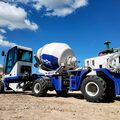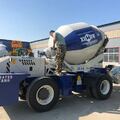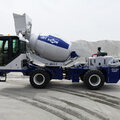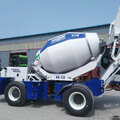Concrete self-loading mixers are vital in construction projects. However, these machines sometimes face starting issues. Understanding the reasons why concrete self-loading mixers don't start properly can help you troubleshoot and resolve these problems efficiently. In this blog, we will explore common causes of starting issues and provide practical solutions. This information will be valuable and useful for customers dealing with concrete self-loading mixers.
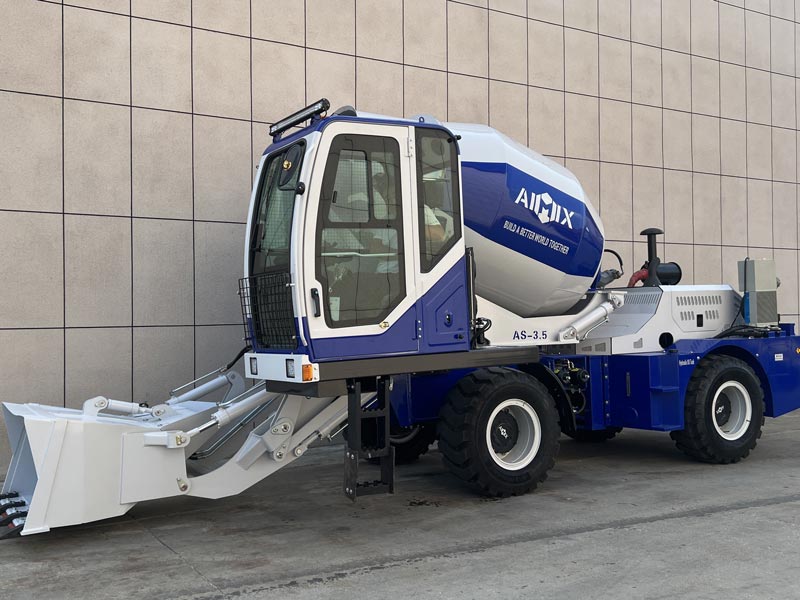
Battery Problems
One of the most common reasons for starting issues in self-loading mixers is battery problems. A weak or dead battery can prevent the mixer from starting. Regularly checking and maintaining the battery can help avoid this issue.
Battery Connections
Loose or corroded battery connections can also cause starting problems. Inspect the battery terminals and cables for any signs of corrosion or looseness. Clean and tighten the connections as needed to ensure proper electrical contact.
Regularly maintaining the battery and its connections helps ensure reliable starting performance.
Fuel System Issues
If you understand how a self loading concrete mixer works, you know how important fuel is to the operation of a self-loading truck. Problems with the fuel system can prevent a self-loading mixer from starting properly. These issues can include a clogged fuel filter, contaminated fuel, or a malfunctioning fuel pump.
Fuel Filter
A clogged fuel filter can restrict fuel flow to the engine. Replace the fuel filter regularly to prevent this issue. Check the manufacturer's recommendations for the appropriate replacement interval.
Ensuring a clean fuel filter helps maintain proper fuel flow and engine performance.
Contaminated Fuel
Contaminated fuel can cause starting problems. Water or debris in the fuel can affect engine performance. Use clean fuel and store it in a suitable container to prevent contamination.
If contaminated fuel is suspected, drain the fuel system and refill it with clean fuel.
Ignition System Problems
Issues with the ignition system can also prevent a self-loading mixer from starting. These problems can include faulty spark plugs, ignition coils, or wiring.
Spark Plugs
Worn or fouled spark plugs can cause starting issues. Inspect the spark plugs regularly and replace them if necessary. Use the correct type of spark plugs as recommended by the manufacturer.
Properly maintained spark plugs ensure reliable ignition and engine performance.
Ignition Coils and Wiring
Faulty ignition coils or damaged wiring can affect the ignition system. Inspect the ignition coils and wiring for any signs of damage or wear. Replace any faulty components to ensure proper ignition.
Maintaining the ignition system helps ensure reliable starting and engine performance.
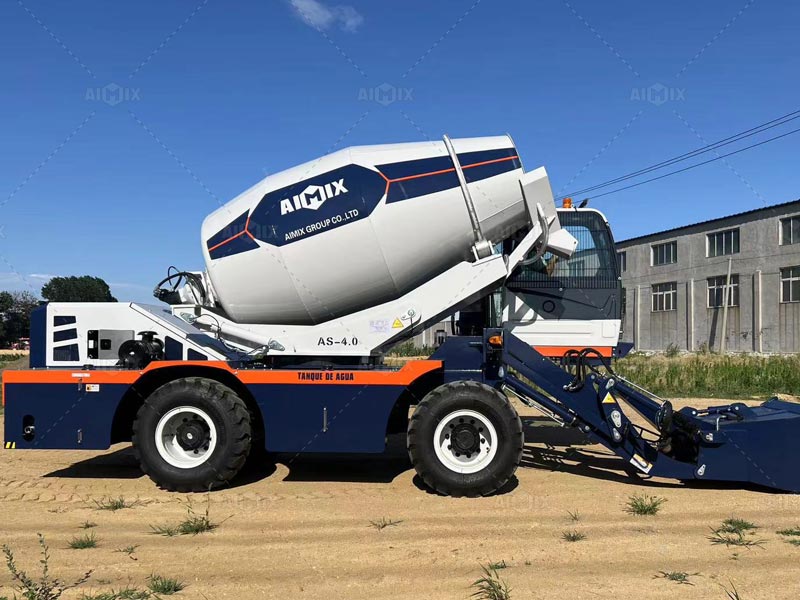
Engine Oil Issues
Engine oil plays a crucial role in the performance of a self-loading mixer. Low or contaminated engine oil can cause starting problems.
Oil Level
Low engine oil levels can prevent the engine from starting properly. Check the oil level regularly and top it up as needed. Use the correct type of oil as recommended by the manufacturer.
Maintaining the proper oil level helps ensure smooth engine operation.
Oil Quality
Contaminated or old engine oil can affect engine performance. Regularly change the engine oil and use high-quality oil to prevent issues. Follow the manufacturer's recommendations for oil change intervals.
Using clean, high-quality oil helps maintain engine performance and reliability.
Electrical System Issues
Problems with the electrical system can also cause starting issues. These problems can include faulty wiring, blown fuses, or a malfunctioning starter motor.
Wiring and Fuses
Inspect the wiring and fuses for any signs of damage or wear. Replace any faulty components to ensure proper electrical connections. Regular maintenance of the electrical system helps prevent starting issues.
Starter Motor
A malfunctioning starter motor can prevent the engine from starting. If the starter motor is suspected to be faulty, have it inspected and repaired by a professional.
Ensuring a functional starter motor helps maintain reliable starting performance.
Conclusion
Understanding the common reasons why concrete self-loading mixers don't start properly can help you troubleshoot and resolve these issues efficiently. Battery problems, fuel system issues, ignition system problems, engine oil issues, and electrical system issues are common causes of starting problems.
Regular maintenance and inspections can help prevent these issues and ensure reliable starting performance. By addressing these common causes, you can maintain the efficiency and reliability of your self-loading mixer. Implementing these practical solutions will help you avoid downtime and keep your construction projects on track.

